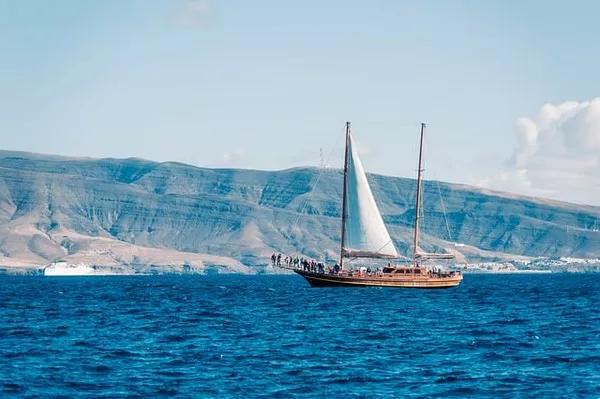Canada, with its rich tapestry of cultures and traditions, boasts a diverse array of holidays that celebrate its history, values, and people. From coast to coast, Canadians eagerly anticipate each holiday, cherishing the opportunity to come together with family and friends, indulge in festive foods, and partake in time-honored customs. As we embark on a journey through the Canadian holiday calendar, let us explore when the next holiday is set to arrive and the significance it holds for the nation.
Understanding the Canadian Holiday Calendar
Before delving into the specifics of the next holiday, it is essential to grasp the framework of the Canadian holiday calendar. Holidays in Canada can be categorized into several types, including statutory holidays, provincial holidays, and cultural or religious observances. Statutory holidays, also known as public holidays, are recognized nationwide and typically entail a day off work for employees. Provincial holidays vary depending on the province or territory and often commemorate events of local significance. Additionally, Canadians celebrate various cultural and religious holidays, reflecting the country’s multicultural landscape.
The Next Canadian Holiday: National Indigenous Peoples Day
On June 21st of each year, Canadians unite to celebrate National Indigenous Peoples Day, a holiday that honors the diverse cultures, traditions, and contributions of Indigenous peoples in Canada. Established in 1996, National Indigenous Peoples Day provides an opportunity for Indigenous communities and all Canadians to come together in celebration and reflection.
Historical Significance of National Indigenous Peoples Day
National Indigenous Peoples Day holds profound historical significance as it acknowledges the resilience, heritage, and ongoing struggles of Indigenous peoples in Canada. For centuries, Indigenous communities have inhabited the land now known as Canada, nurturing unique cultures, languages, and ways of life. However, the arrival of European settlers brought profound changes, including colonization, displacement, and attempts at cultural assimilation.
Despite centuries of adversity, Indigenous peoples have persevered, maintaining their cultural identities and advocating for recognition, rights, and reconciliation. National Indigenous Peoples Day serves as a platform to honor these legacies, amplify Indigenous voices, and foster understanding and solidarity among all Canadians.
Celebratory Traditions and Activities
Across Canada, National Indigenous Peoples Day is commemorated through a myriad of events, activities, and cultural performances that showcase the richness and diversity of Indigenous cultures. From traditional ceremonies and powwows to art exhibitions and storytelling sessions, communities come alive with vibrancy and pride.
One of the hallmark events of National Indigenous Peoples Day is the hosting of powwows, traditional gatherings that feature dancing, drumming, and regalia. Powwows serve as a space for Indigenous peoples to connect with their heritage, share stories, and express cultural identity through song and dance. These gatherings welcome participants of all backgrounds, fostering cross-cultural exchange and understanding.
In addition to powwows, communities organize feasts, workshops, and educational initiatives to engage people of all ages in learning about Indigenous history, traditions, and contemporary issues. Through these activities, National Indigenous Peoples Day becomes a catalyst for dialogue, reconciliation, and mutual respect.
Acknowledging Ongoing Challenges and Opportunities
While National Indigenous Peoples Day is a time of celebration, it is also an occasion to confront the ongoing challenges faced by Indigenous communities in Canada. Issues such as systemic discrimination, socio-economic disparities, and the legacy of colonialism continue to impact Indigenous peoples, highlighting the need for continued advocacy and action.
As Canadians commemorate National Indigenous Peoples Day, it is essential to recognize the importance of advancing reconciliation and fostering meaningful relationships between Indigenous and non-Indigenous peoples. This includes honoring treaty rights, supporting Indigenous-led initiatives, and amplifying Indigenous voices in decision-making processes.
Furthermore, National Indigenous Peoples Day presents an opportunity for Canadians to engage in allyship and solidarity with Indigenous communities. By listening, learning, and actively participating in reconciliation efforts, individuals can contribute to building a more equitable and inclusive society for all.
See also:Is Boxing Day a Canadian Holiday
Conclusion: Embracing Diversity and Unity
As the next Canadian holiday on the horizon, National Indigenous Peoples Day invites Canadians to come together in celebration, reflection, and solidarity. By honoring the rich heritage and contributions of Indigenous peoples, we reaffirm our commitment to reconciliation, justice, and respect for all cultures.
As we mark National Indigenous Peoples Day, let us embrace the diversity that defines Canada and strive to build a future where Indigenous and non-Indigenous peoples walk hand in hand on the path towards reconciliation and healing.
In closing, let us heed the words of Chief Dan George, a revered Indigenous leader and activist: “May the stars carry your sadness away, may the flowers fill your heart with beauty, and may hope forever wipe away your tears. And, above all, may silence make you strong.”

